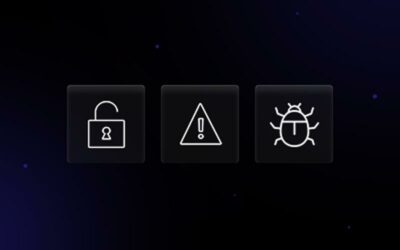Small businesses have been among the top victims of cyberattacks for years, but recently these hacks have been more frequent and debilitating than usual. Why has this happened? Let’s explore why hackers target small businesses and what we can do to stop them.
WHY HACKERS ARE TARGETING SMALL BUSINESSES
1) Insufficient cybersecurity
Small businesses often don’t have the funds, resources, or awareness to implement adequate cybersecurity measures. In fact, 60% of surveyed companies don’t think cybersecurity is all that important. They view hackers as lone wolf criminals who target banks and massive corporations, but hackers come from anywhere and often use simple scamming methods to get what they want.
Hackers are more active than ever with a widespread switch to remote work, making businesses’ security weaknesses more glaring and employees more prone to mistakes. About 43% of surveyed home-based workers said they made errors that led to a cyberattack in 2020.
2) More vulnerable to manipulation
Since most small businesses don’t take cyberthreats seriously, they don’t have strong barriers and haven’t trained to recognize the telltale signs. That means they’re more likely to fall for simple scams, give hackers private information, and get infected with malware.
Once the hacker has the information they need, they can coerce the companies into paying a ransom to prevent further damage. Most criminals don’t have this power or authority, but the victim doesn’t know any better and hands over the money. Many small businesses have fallen into this cycle and learned the importance of cybersecurity the hard way.
3) Gateways to larger organizations
Hackers also target small businesses to use them as gateways to larger organizations. A locally owned company might have access to a bigger corporation’s credentials through a personal connection, which opens the door for hackers to swoop in and steal from both.
For example, hackers exposed 40 million credit and debit card accounts from retail giant Target during the 2013 holiday season. They got the necessary credentials from a small HVAC service shop in Pennsylvania, which connected them to Target’s point-of-sale devices without detection. This minor security flaw led to a multistate investigation and the largest data breach settlement in history.
Cybercriminals only need one pipeline. They’re happy to target a small business if they can reach a more high-profile company.
4) Collateral damage
Cybercriminals also don’t mind indirectly harming a small business in pursuit of bigger targets. This situation occurs most often when it outsources its IT and data to a third-party software company. If this organization gets hacked, the small business’s operations come to a halt and they have to wait until the problem is solved.
Through no fault of their own, small businesses can face the collateral damage of a cyberattack and suffer severe financial and reputational harm. They might have sufficient in-house security measures, but that doesn’t matter if the attack comes from a third party.
WHAT CAN SMALL BUSINESSES DO?
Your small business should take all cyber threats seriously. A simple phishing email could lead to disaster for your company. You might be a little fish in a big pond, but that means you’re among the easiest prey. Here are some tips to help you secure your data and prepare your employees:
- Enable multifactor authentication for all devices and accounts.
- Conduct frequent cybersecurity briefings for employees and an onboarding program for new hires.
- Back up files to multiple locations and update your software regularly.
- Invest in a VPN for secure internet browsing.
- Implement antivirus software, data encryption, email protection solutions, and other vital security features to guard against common cyber threats.
- Get covered with a cybersecurity insurance policy.
- Conduct frequent vulnerability tests with the help of a cybersecurity company.
Your business’s security needs to be proactive, not reactive. Be prepared to invest significant time and resources to get these various measures up to speed.
BOLSTER YOUR CYBERSECURITY NOW
The longer you wait to review your current cybersecurity measures, the more likely you will suffer an attack. Your information might already be compromised. Stop waiting and bolster your cybersecurity now so your business can function without fear and you can sleep easier.



